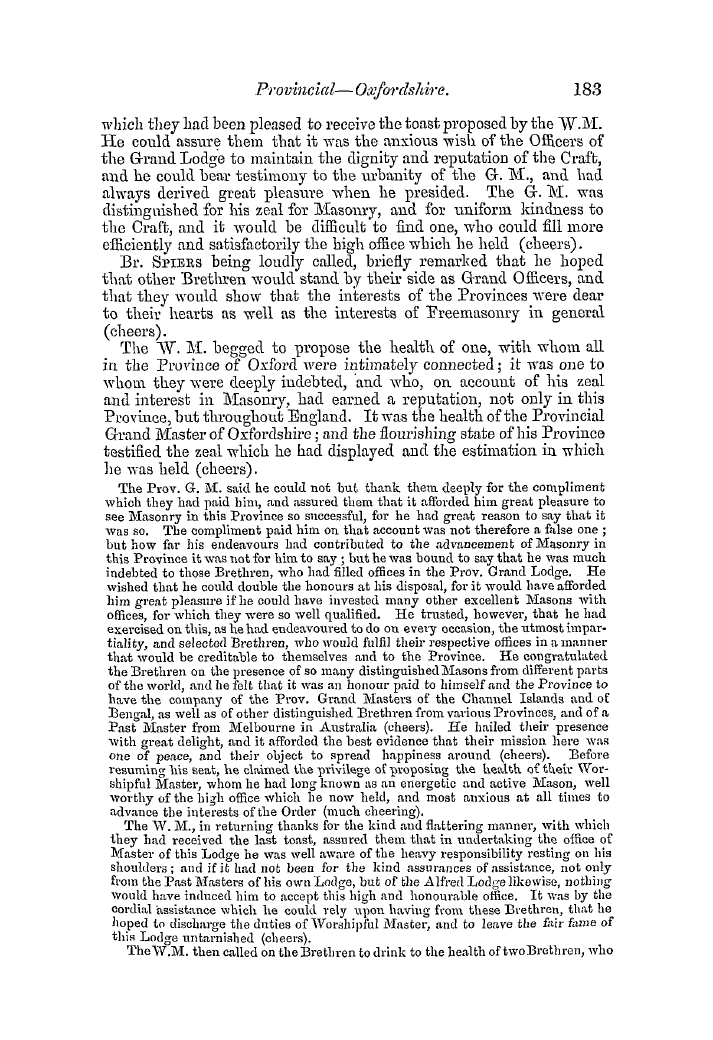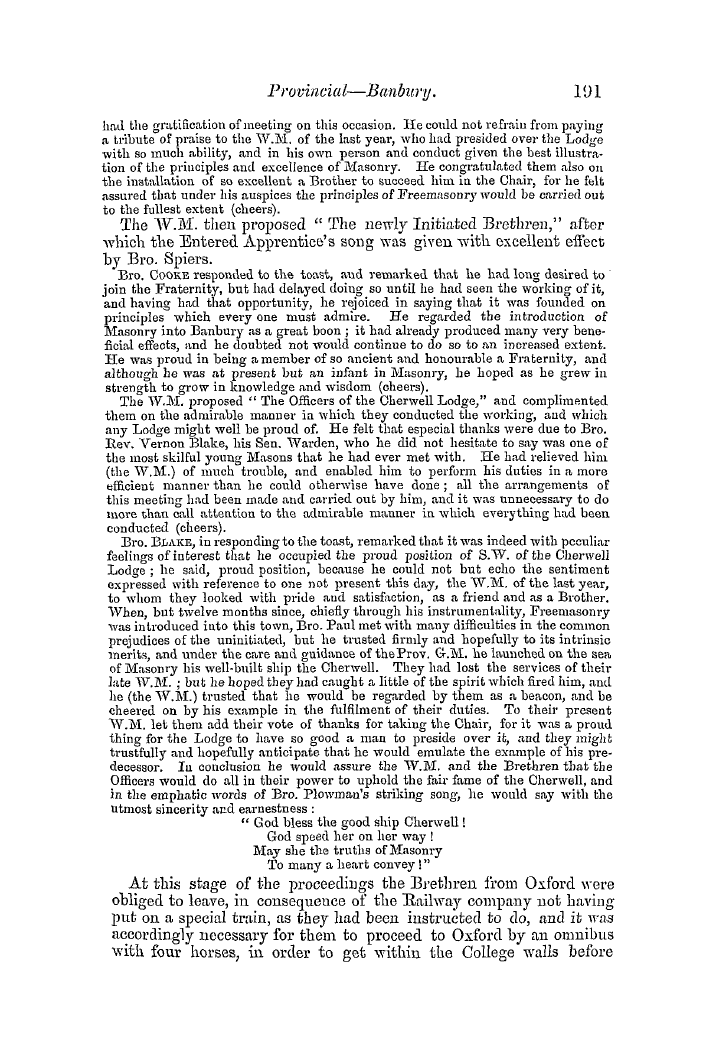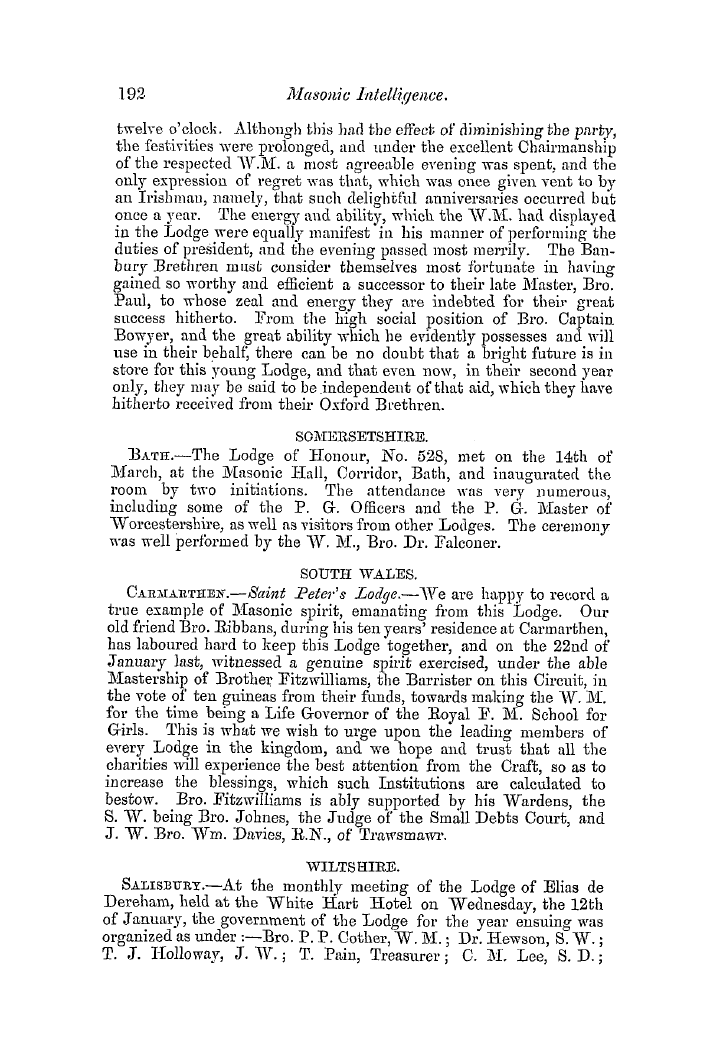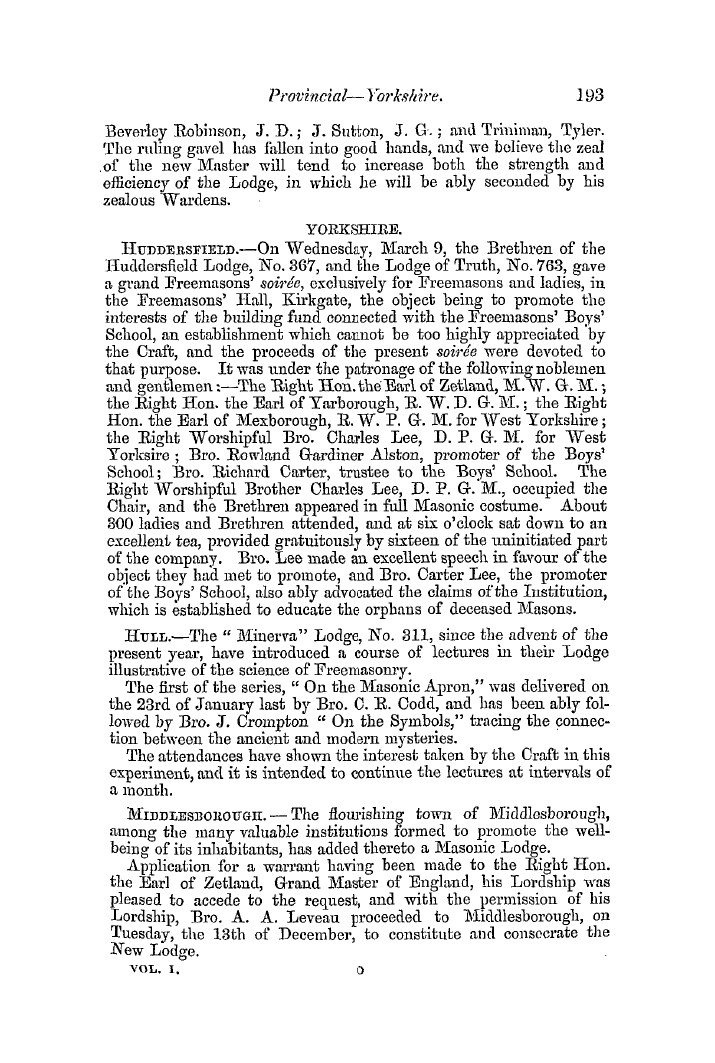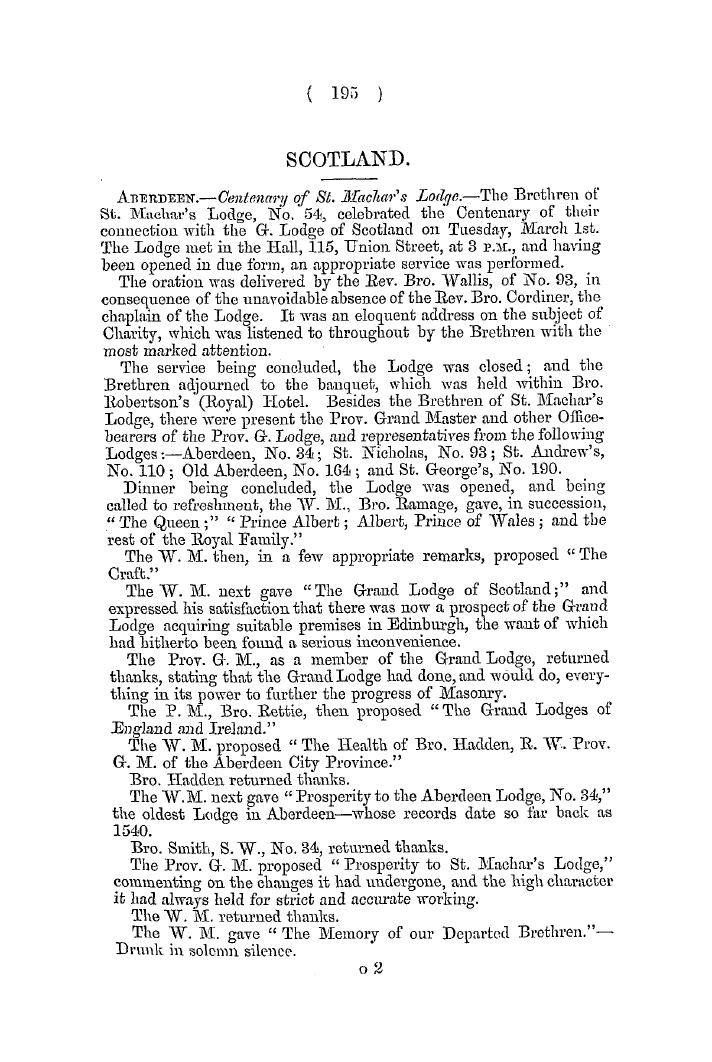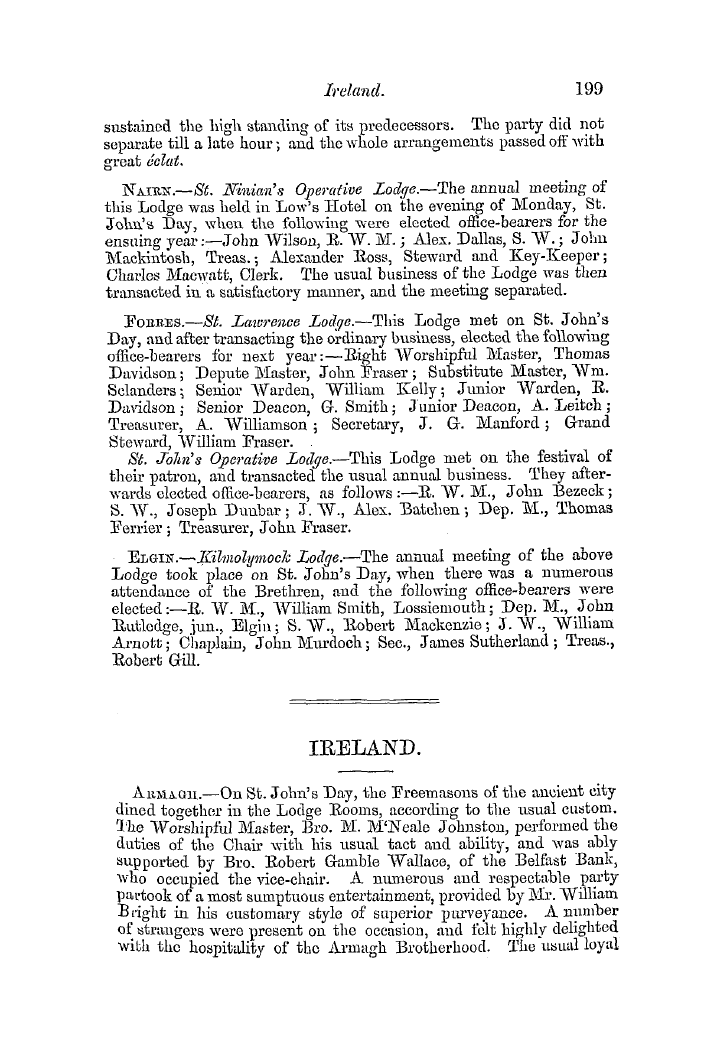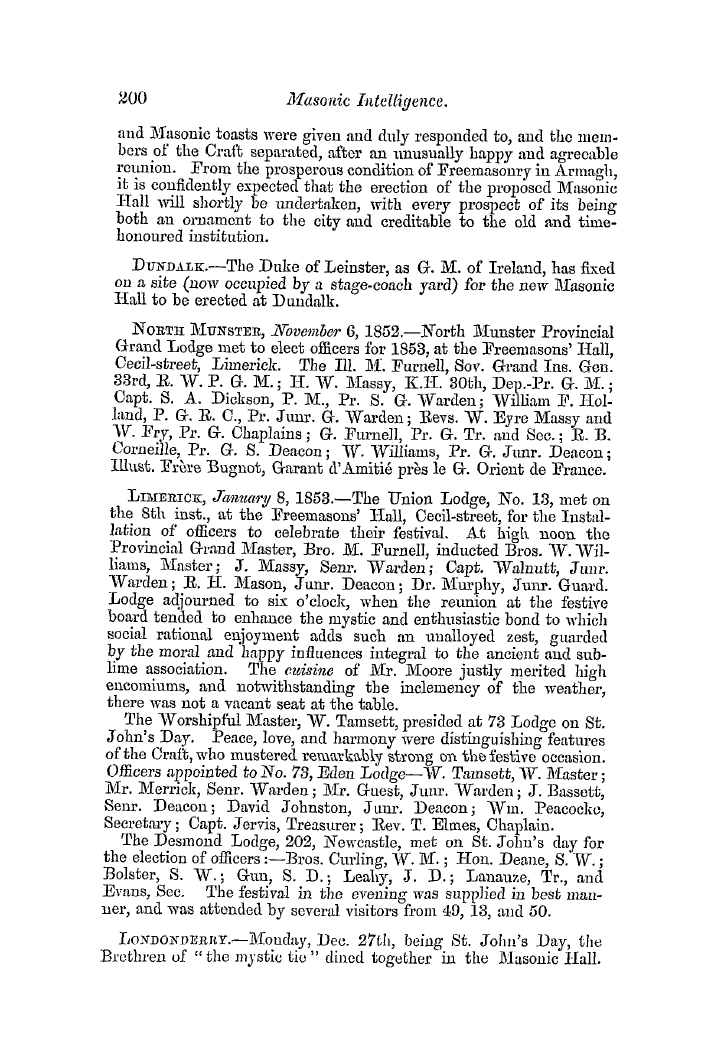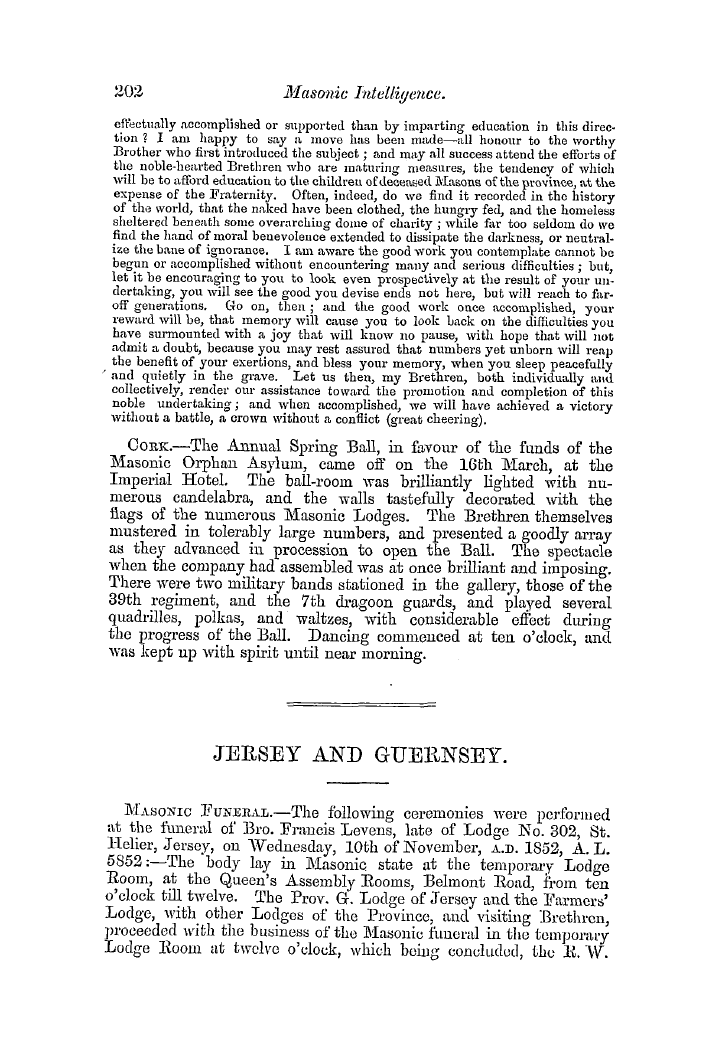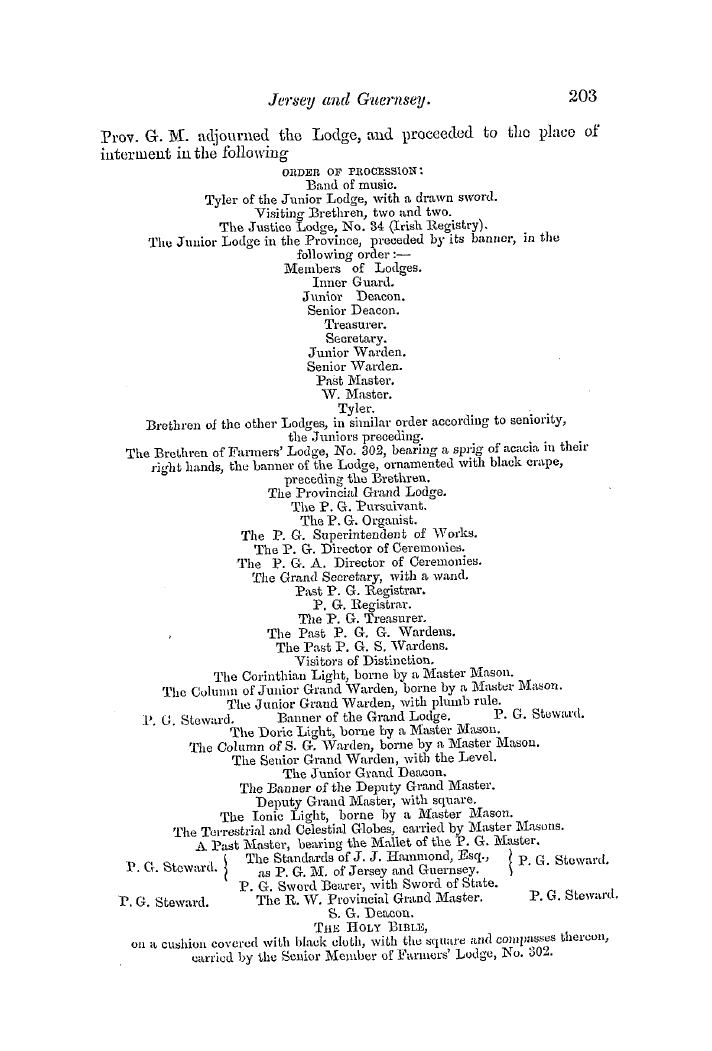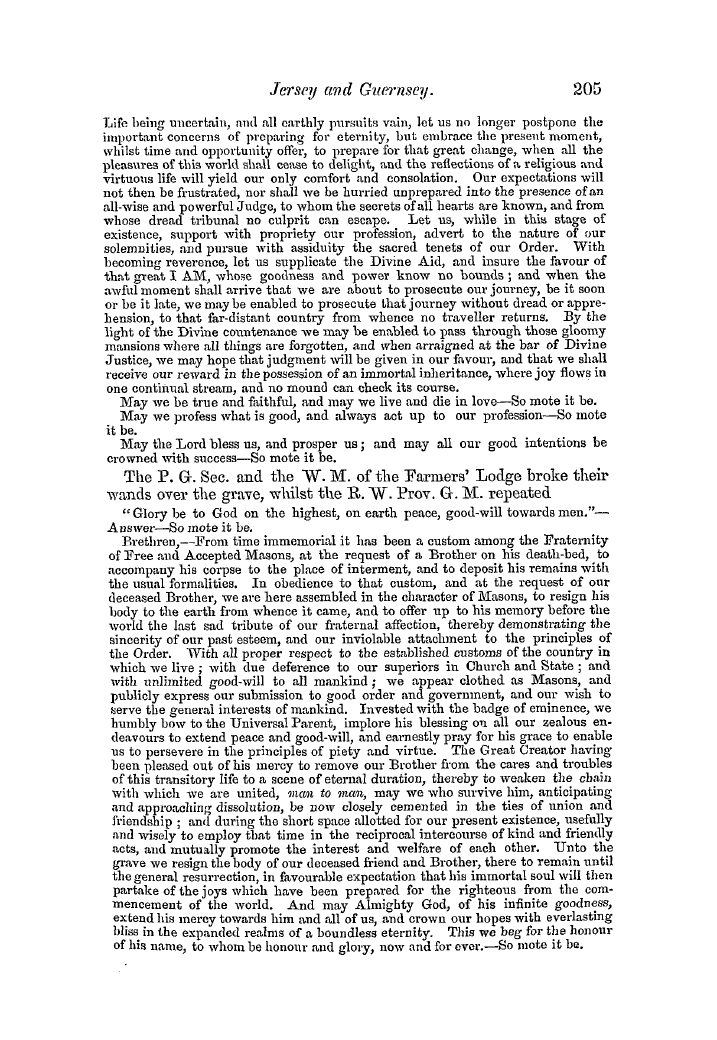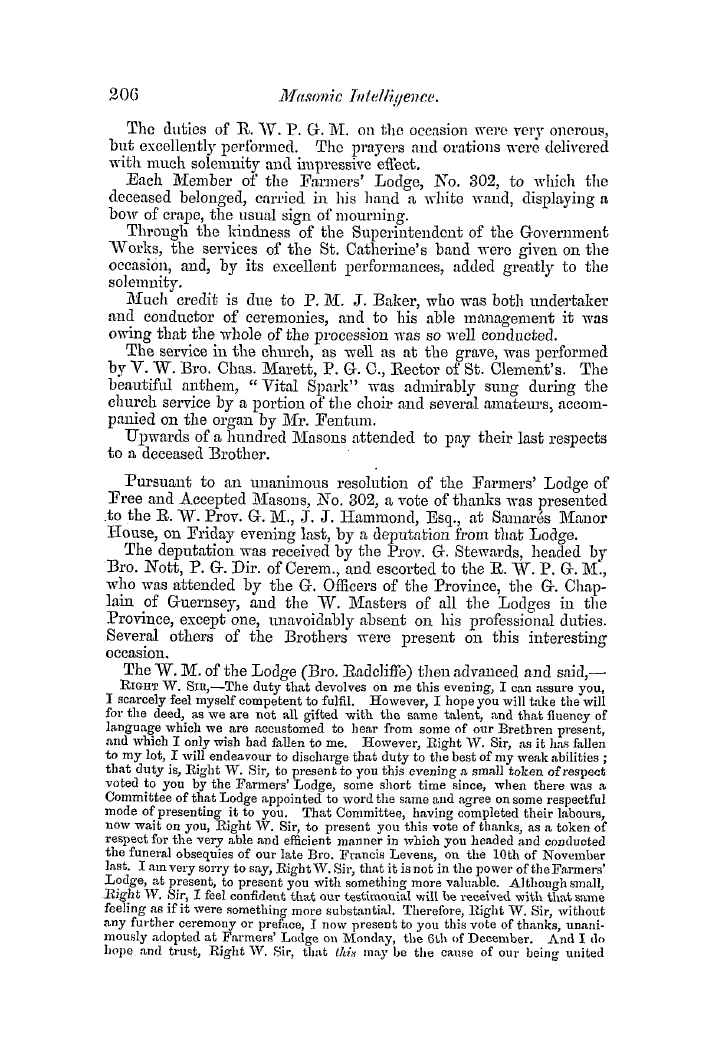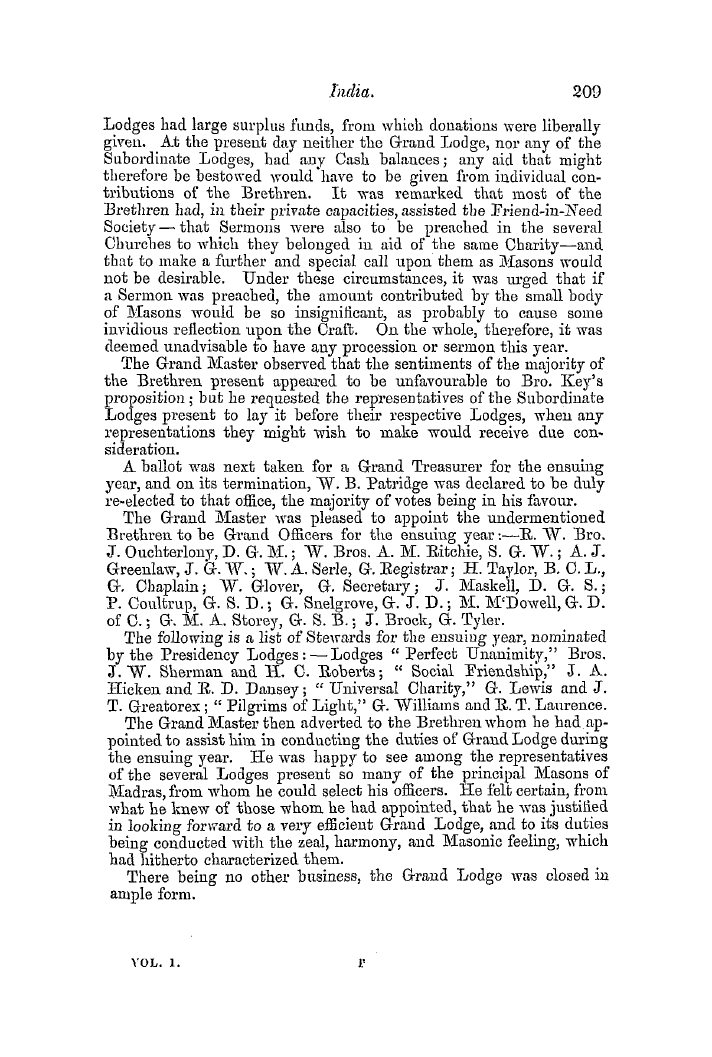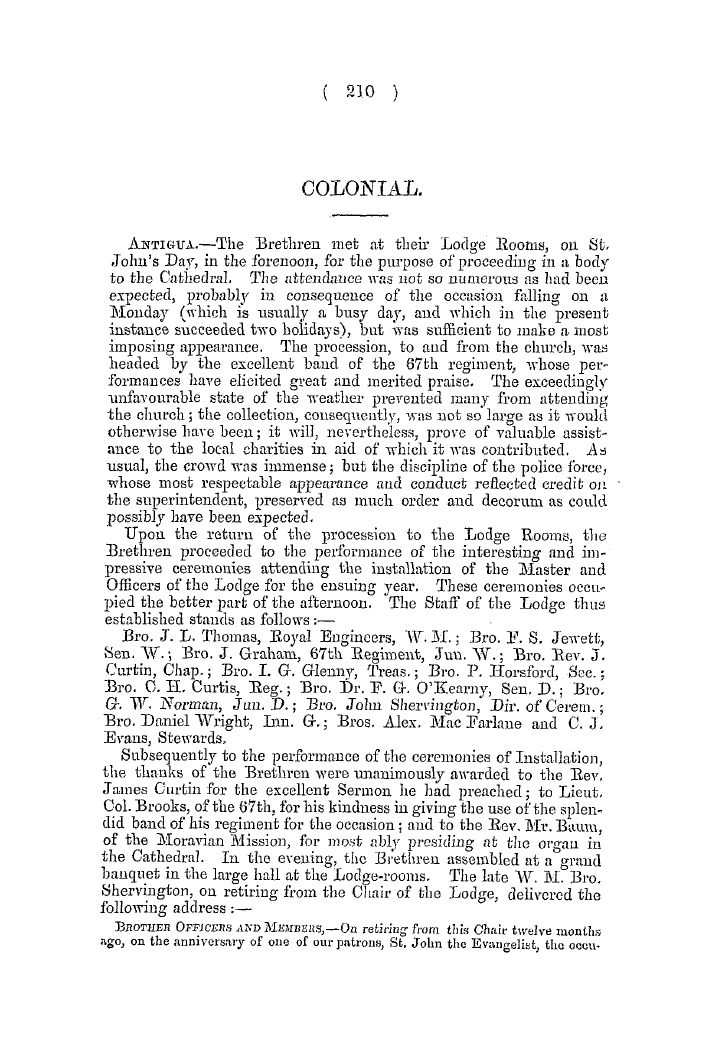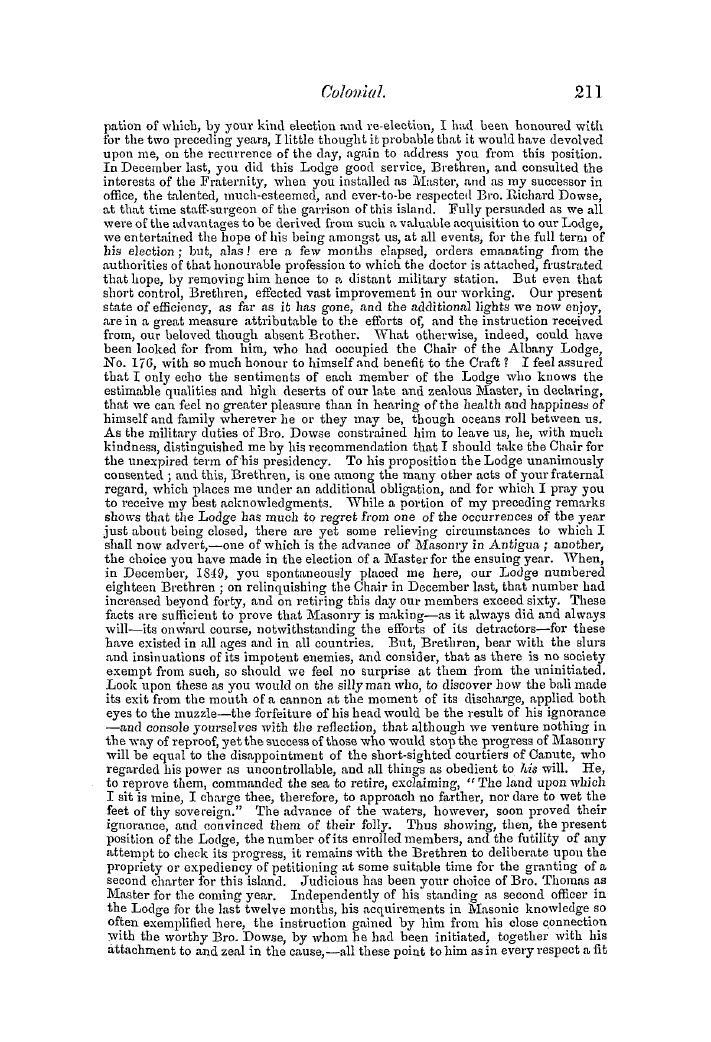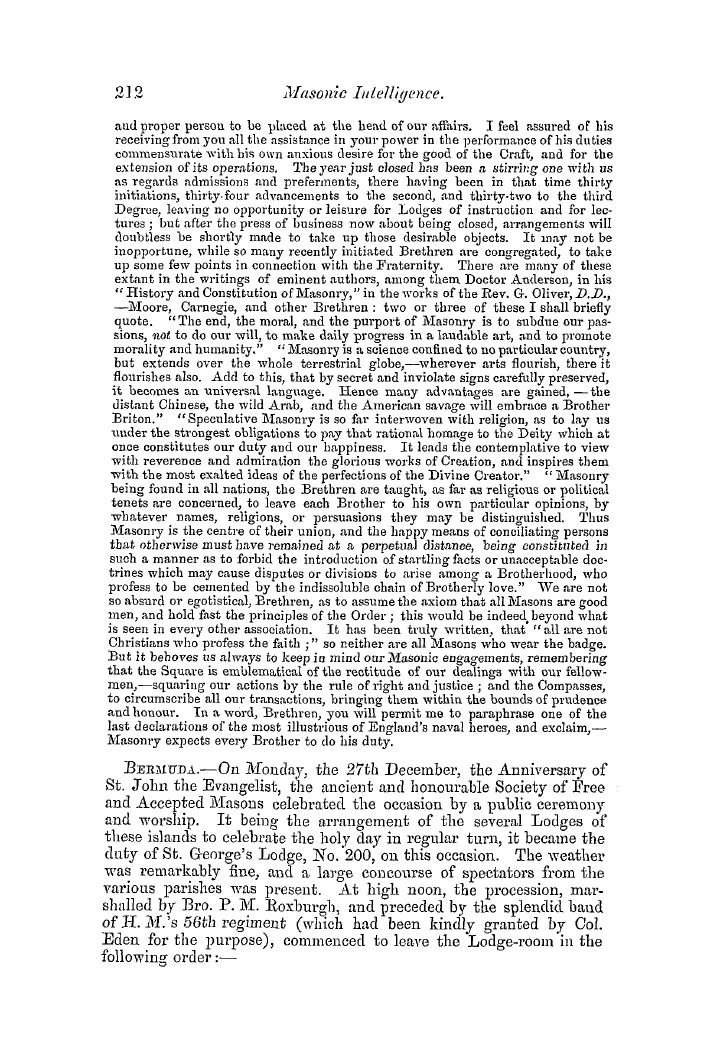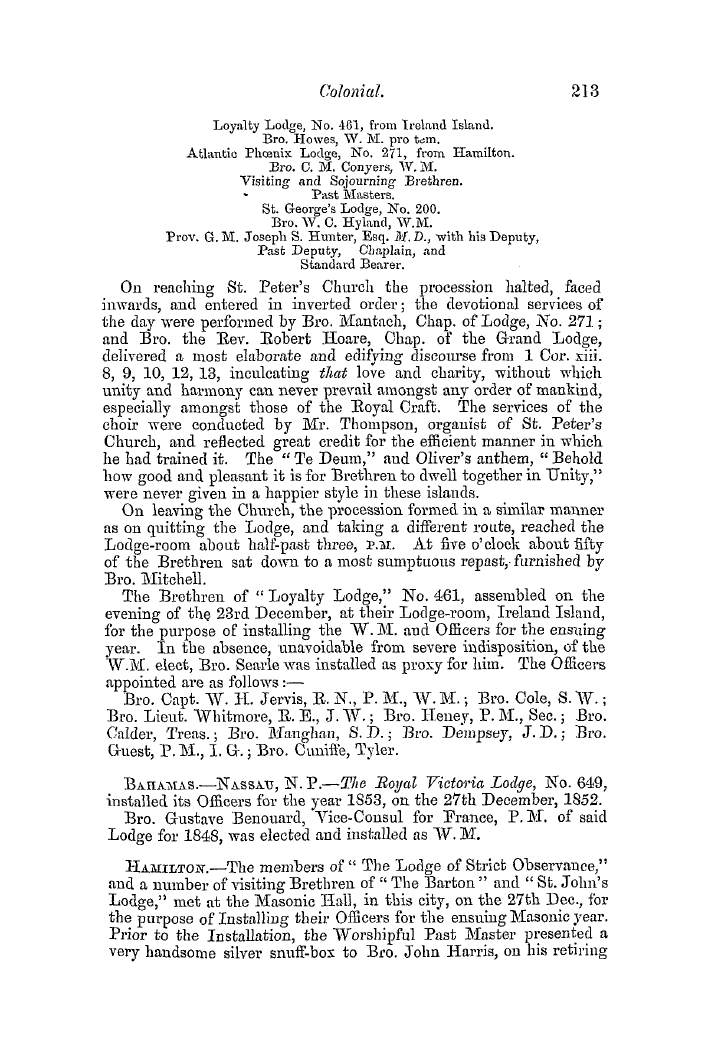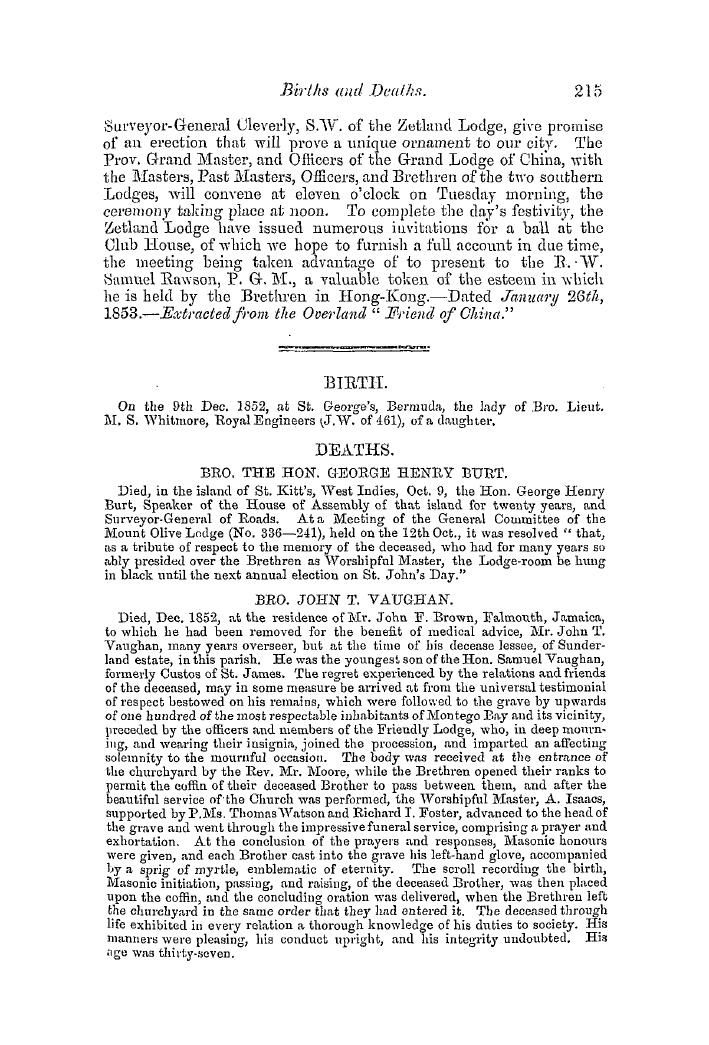-
Articles/Ads
Article THE UNIVERSALITY OF SUPERSTITION. ← Page 19 of 20 →
Note: This text has been automatically extracted via Optical Character Recognition (OCR) software.
The Universality Of Superstition.
The various ceremonies attached to religious and general festivals among ourselves will be found to present many features resembling those of pagan superstition and ordinary observance . The Romans , like us , made presents , A * isits , and congratulations on NCAV Year ' s-day . Mr . Fosbrooke , in his " Encycloptedia of Antiquities" describes a piece of Roman potterythe
inscri-, , p tion being , " a happy new year to you . " NBAV year's gifts AA'ere continued under the emperors , until stopped by Claudius . St . A ' alentine's-day originated in certain Roman customs at the feast of Lupercalia , in the month of February . Light-bearing
at Candlemas is an ancient pagan ceremony . Collop-Monday , the last clay of feasting previous to Lent , corresponds xvith the feast of Bacchus at Rome , on the same period . At Eton it Avas customary to AA * rite Latin verses on Bacchus on this clay . From the Saxon goddess Eastre , whose festival was helcl in April , we retain the term Easter . The decking of churches with evergreens
at Christmas is , too , a heathen practice , who placed them as a refuge for sylvan spirits during the Avinter . The misletoe , indicative of universal privilege , nay , even our very mince-pie , is to be referred to similar origin ; the latter being considered to have in A'iexv the varied eastern spices brought at this season by the star-led magi . The practice of choosing a king and
queen on Txvelfth-night is derived from the Greeks and Romans , xx'ho , on the festival days of Saturn , occurring at this time , drew for the king of Saturnalia by lot . The leek , Avorn by the Welsh on St . David ' s-day , Avas an object of worship among the Egyptians , and is found on the head of Osiris in then * hieroglyphics . It Avas also among the Druids , from whom it is conjectured it
has been handed doxvn to the Welsh , a symbol in honour of Cendven or Ceres . Leeks xvere xvorshipped anciently at Ascalon , xx'hence , curiously enough , our modern term , " scallion . " Sir Walter Scott says that the custom of saying " God bless you , " XA'hen a person happens to sneeze , is derived from the fact that during the plague at Athens , sternutation indicated a crisis , and
gave hope of recox'ery . It may not be out of place to quote , in connection with the subjects of this paper , some remarks from the pen of Miss Martineau , who , after instancing the tendencj'' of the religious ascetic to superstition , as evinced in the Highlands by the dread of playing ex en a hymn tune on the piano on Sunda 3 »* and b
, y Wesley , xvho opened his Bible to light upon texts , continues : — " The ascetic who glories in haxing put away the superstitions of the licentious form , has superstitions of his own . He has more or less belief in judgments , in retributive eA'ils , arbitrarily inflicted . The chief difference betAveen his superstition and A ' OL . i . rr
Note: This text has been automatically extracted via Optical Character Recognition (OCR) software.
The Universality Of Superstition.
The various ceremonies attached to religious and general festivals among ourselves will be found to present many features resembling those of pagan superstition and ordinary observance . The Romans , like us , made presents , A * isits , and congratulations on NCAV Year ' s-day . Mr . Fosbrooke , in his " Encycloptedia of Antiquities" describes a piece of Roman potterythe
inscri-, , p tion being , " a happy new year to you . " NBAV year's gifts AA'ere continued under the emperors , until stopped by Claudius . St . A ' alentine's-day originated in certain Roman customs at the feast of Lupercalia , in the month of February . Light-bearing
at Candlemas is an ancient pagan ceremony . Collop-Monday , the last clay of feasting previous to Lent , corresponds xvith the feast of Bacchus at Rome , on the same period . At Eton it Avas customary to AA * rite Latin verses on Bacchus on this clay . From the Saxon goddess Eastre , whose festival was helcl in April , we retain the term Easter . The decking of churches with evergreens
at Christmas is , too , a heathen practice , who placed them as a refuge for sylvan spirits during the Avinter . The misletoe , indicative of universal privilege , nay , even our very mince-pie , is to be referred to similar origin ; the latter being considered to have in A'iexv the varied eastern spices brought at this season by the star-led magi . The practice of choosing a king and
queen on Txvelfth-night is derived from the Greeks and Romans , xx'ho , on the festival days of Saturn , occurring at this time , drew for the king of Saturnalia by lot . The leek , Avorn by the Welsh on St . David ' s-day , Avas an object of worship among the Egyptians , and is found on the head of Osiris in then * hieroglyphics . It Avas also among the Druids , from whom it is conjectured it
has been handed doxvn to the Welsh , a symbol in honour of Cendven or Ceres . Leeks xvere xvorshipped anciently at Ascalon , xx'hence , curiously enough , our modern term , " scallion . " Sir Walter Scott says that the custom of saying " God bless you , " XA'hen a person happens to sneeze , is derived from the fact that during the plague at Athens , sternutation indicated a crisis , and
gave hope of recox'ery . It may not be out of place to quote , in connection with the subjects of this paper , some remarks from the pen of Miss Martineau , who , after instancing the tendencj'' of the religious ascetic to superstition , as evinced in the Highlands by the dread of playing ex en a hymn tune on the piano on Sunda 3 »* and b
, y Wesley , xvho opened his Bible to light upon texts , continues : — " The ascetic who glories in haxing put away the superstitions of the licentious form , has superstitions of his own . He has more or less belief in judgments , in retributive eA'ils , arbitrarily inflicted . The chief difference betAveen his superstition and A ' OL . i . rr
































































































































































































